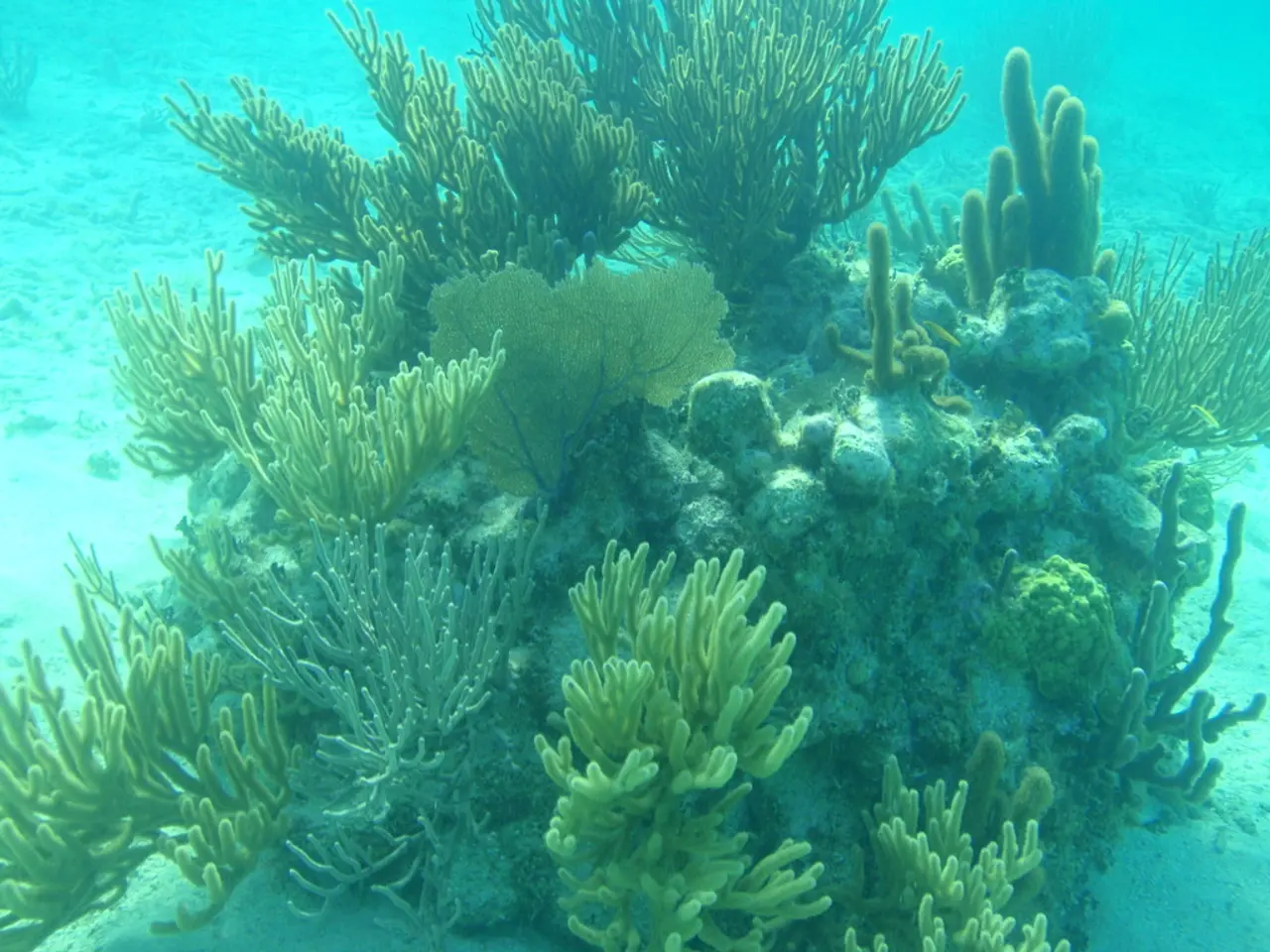Ninja warriors tackle climate crisis: a pair of fighters dedicated to saving Posidonia and black coral reefs
Discovering the Carbon-Eating Powerhouses of the Mediterranean
In the depths of the Mediterranean Sea, around the Egadi Islands, a discovery has been made that sheds new light on the ocean's role in combating climate change. A recent expedition, led by biologist Giovanni Chimienti and funded by the National Geographic Society, has uncovered the secret of the black coral and its CO2-absorbing capabilities.
The black coral, known as the Methuselah of the seas due to its resilience, has been found to be a mine of little-studied organisms that help combat climate change. With the oldest colony in the Mediterranean being 2,500 years old, these organisms are a testament to the sea's enduring power.
The black coral's structure, which turns black due to a protein called antipathin, is home to millions of tiny white polyps. These polyps absorb CO2 and extract the carbon needed to create their exoskeleton. This makes the black coral the second CO2-killing organism discovered, following Posidonia, a plant often mistaken for algae by beachgoers. Posidonia, it turns out, absorbs twice as much CO2 as trees.
The relationship between black coral and the abundant fish fauna in the waters around the Egadi Islands lies primarily in the ecological role that black coral plays as a habitat and shelter provider. Black coral formations create complex underwater structures that serve as refuge, breeding grounds, and hunting areas for various fish species, thus supporting a diverse and abundant fish fauna around the Egadi Islands.
The discovery of the black coral's meadow was documented in the film "White in Blue." The Prada group is promoting this discovery as part of the Sea Beyond project with UNESCO. Italy, due to the Posidonia in the Egadi Islands, can be considered as having a "blue lung" that eats CO2.
The largest Posidonia meadow in the Mediterranean is in the Egadi Islands Marine Protected Area. This meadow, along with the black coral's unique habitat, capable of making the abundant fish fauna proliferate, was discovered at the end of the third research campaign. The Egadi Islands, being part of the Mediterranean Sea, host such habitats where black coral and other benthic organisms form an ecosystem that sustains rich marine life including many fish species.
This discovery underscores the importance of preserving these underwater ecosystems. Sicilian fishermen sometimes find black coral in their nets, cursing it because it breaks them, making them unusable. However, the benefits of these carbon-eating organisms far outweigh the inconvenience they cause to the fishing industry.
In conclusion, the discovery of the black coral's CO2-absorbing capabilities and its relationship with the abundant fish fauna in the waters around the Egadi Islands highlights the crucial role of the Mediterranean Sea in combating climate change. The Egadi Islands, with their rich underwater habitats, serve as a testament to the ocean's power and resilience, and a reminder of the need to protect and preserve these valuable ecosystems.
- In the realm of science and health-and-wellness, humans can learn from the carbon-absorbing capabilities of the black coral, fostering advancements in fitness-and-exercise programs that aim to mitigate the impact of climate change.
- As we work towards preserving the environment, the discovery of black coral's role in the Mediterranean Sea adds another vital piece to the puzzle of environmental-science, shedding light on the ocean's potential in addressing climate change.
- Advocates for climate change initiatives could draw inspiration from the black coral findings, highlighting the importance of protecting the marine environment by emphasizing both its role in health-and-wellness and its crucial contribution to combating climate change.




